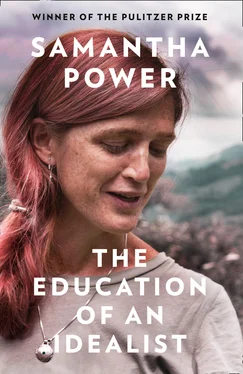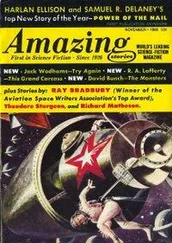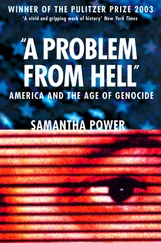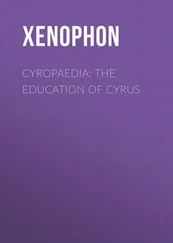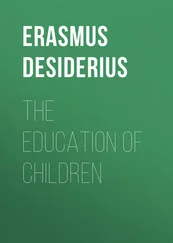While my grandfather adored his daughter, his traditional views on gender roles made him worry that Mum would prioritize her career above her marriage. My grandfather accurately saw his new son-in-law as a man who needed to be taken care of. My dad had been idolized and sheltered by his own mother, but despite this coddled upbringing, he was deeply drawn to women with opinions and ambitions of their own.
While the accomplished duo initially charged forth, their interests soon began to diverge. My mother studied constantly, partly to make up for all she felt she didn’t know. And having grown up fearing that any knock on the door might be a lender seizing the family home to pay her father’s gambling debts, Mum was determined to take control of her own path. In contrast, my dad’s achievements had always come effortlessly. His photographic memory allowed him to look at a blank wall and visualize words as he had previously read them on the page. Because my father never felt the passion for his career that Mum had for hers, he lacked focus. Despite being an established dentist, at the age of thirty-five he decided to take the unusual step of returning to school to get a medical degree of his own.
I was born in September of 1970, while Mum was still studying to become a doctor in London. When my dad began the six-year course at University College Dublin shortly thereafter, we moved back to Dublin, where Mum would finish medical school. Although my dad breezed through his program, when he finally became Dr. Jim Power, MD, he showed no interest in practicing medicine—an attitude Mum couldn’t fathom. His older sister came to refer to him as “the eternal student.”
My father had always been a drinker, but after Mum threw herself deeper into her medical career, his drinking became something of a vocation. His second home was Hartigan’s, a pub ten minutes away from where we lived. Known for its highbrow political debates, no-frills decorum, and the taste and pour of its pints, Hartigan’s felt like a village pub in the middle of Ireland’s bustling capital. My father was one of the regulars.
Guinness—the dark brown, silky stout with the thick, pillowy head—was not just his drink; it was his craft. Known as “mother’s milk,” Guinness had adopted the tagline “GUINNESS IS GOOD FOR YOU” in the 1920s, and most of us believed it. For decades, Irish mothers had been served Guinness after giving birth because of its iron content and perceived health benefits.
Like many of his contemporaries, my father hailed the delicacy of the drinking experience, stressing the proper “two-pour” approach: tilting the tulip-shaped pint glass at a 45-degree angle, filling it halfway, pausing so the stout could settle, and then—and only then—pouring the rest. “Pulling a pint” properly, my dad insisted, should take at least two minutes. “Good things come to those who wait,” he would say, mimicking the satisfied customers in the Guinness television ads. Once the pour was complete, my dad—usually an impatient man—waited with unencumbered anticipation for the barman to smooth the creamy head with a butter knife. He relished the first taste of every pint, pausing before clearing his upper lip of Guinness’s signature foamy residue.
By the time my brother Stephen was born in 1974, the cracks in our parents’ relationship were widening. The pub would become at once a sanctuary for my dad and an accelerator of his faltering marriage.
BOTH MUM AND DAD included me—and, when he was older, Stephen—in what they were doing, carving out time to be alone with each of us. I would often spend large parts of my afternoons and weekends accompanying Mum to the squash court, watching her smack the tiny black ball with a wooden Slazenger racket. She was unfailingly gracious on the court, but also fiercely competitive. Sitting in the wooden bleachers and watching her seemingly endless rallies, I would cheer as she wore down her opponents with her trademark grit.
Swimming together in the Irish Sea at the Blackrock beach, we would laugh as we both turned purple, teeth chattering in the frigid water. She often brought me on road trips to her hometown of Cork to visit with her parents and my many aunts, uncles, and cousins. Driving in her tiny Mini on Ireland’s bendy roads, we blissfully belted out songs of my choosing—“It’s a Long Way to Tipperary,” “Molly Malone,” and “She’ll Be Coming ’Round the Mountain.” On occasions when we hopped the train in Dublin and settled in for the three-hour ride, she would unfurl tinfoil-wrapped cheddar cheese and butter wedged between two Jacob’s Cream Crackers, followed by a Cadbury Flake chocolate bar or Kimberley biscuits. I loved the feeling of curling up next to her as she devoured her medical journals, and from around the age of six, I too would sink into a book.
Mum gave people she met a quality of attention that I would come to associate with the most gifted politicians. When making a new acquaintance, she would cock her head to the side and peer earnestly at the other person, digging for details and drawing connections across time and space. She laughed with her whole body, or—if someone’s tale was a sad one—sagged with the weight of the other person’s anguish. I never knew my mother to have an ulterior motive as she listened; she was simply curious and intensely empathetic. She had no airs and eschewed sentimentality, conveying her love not through expressive words—which to her would have sounded maudlin—but through intense, affectionate focus.
Early on, I saw that my mother had a gift for cramming as much life as possible into a day. She arose before dawn, often completing her six-mile morning run before I began groggily pouring my cereal. The only time I saw her sitting still was when she watched professional tennis. When the Wimbledon coverage began, she would park herself in front of our television for hours, contentedly taking in the juniors, the bottom seeds, the doubles, and her favorite, Björn Borg.
Mum was a terrible sleeper. She worried about her patients, with whom she formed deep attachments. But above all, she fretted about my younger brother, who spent the first six weeks of his life in the hospital. When he was born, Stephen suffered a collapsed lung and then quickly contracted meningitis. When he was unable to hold down food, the doctors realized he had a severe intestinal blockage that required surgery. He recovered from the operation, but didn’t talk for his first two years. While my dad thought he would speak when he felt like it, Mum thought the meningitis might have caused him to go deaf.
Dad proved correct. Stephen became an adorably loquacious troublemaker who got great laughs out of laying intricate traps throughout the house for his unsuspecting parents and older sister. At school, though, he struggled, rarely showing interest. My mother spent many nights awake, wondering if he would ever apply himself.
My father always seemed carefree. His dental practice was desultory; he appeared to only work when he felt like it. We would play tennis in the cul-de-sac outside our home, or I would tag along as he pounded golf balls on the driving range. He was close with his parents, whom we often visited two hours away in the town of Athlone. His mother was a force of nature—as a young woman in England, she had built a school from scratch and later made a comfortable living playing the stock market. His dad, whom I and all the grandkids called “Bam Bam,” was a former Irish soldier with a sunny outlook on life, often proclaiming, “Never trouble trouble unless trouble troubles you.” Having retired from the military years before, Bam Bam seemed to have no higher priority than kicking around a soccer ball with Stephen and me or taking us for ice cream.
Thursdays were especially precious to me, as they were reserved for my weekly “day out” in Dublin with my dad. He would pick me up from Mount Anville, the Catholic school I attended, take me for a hamburger, and then help me stock up on candy before we landed at Hartigan’s. Our arrival at the pub was usually a welcome escape from the lashing rain or, on short winter afternoons, the damp darkness. As soon as my father was spotted, he was greeted with cheers of “Jimbo!,” “Jimmy!,” or “If it isn’t the fine doctor himself!” My dad was such a regular patron that he had a designated chair—known as the “Seat of Power”—at the bar.
Читать дальше
